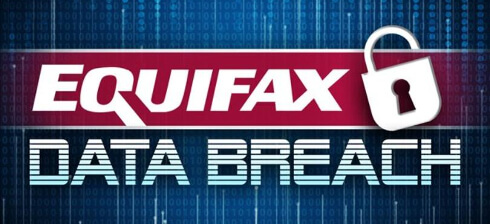 In July of 2017, Equifax, the large credit reporting company experienced a data breach that resulted in the loss of the personal information of 143 million American consumers. This would later be known as one of the largest hackings in American History. The victims of this incident have filed lawsuits against the credit reporting company for monetary and personal information loss, as well as the potential threat of identity theft. However, many of those hoping to file a lawsuit is unsure of the statute of limitations that govern a case of this nature. Fortunately, our expert attorneys with experience in identity theft at the top-ratd Normandie Law Firm can assist you in not only helping you discern the statute of limitations, but we can also represent you and your case in court. If you have any questions after reading this article, please feel free to reach out to our law offices for a free consultation by one of our qualified lawyers with experience handling identity theft claims.
In July of 2017, Equifax, the large credit reporting company experienced a data breach that resulted in the loss of the personal information of 143 million American consumers. This would later be known as one of the largest hackings in American History. The victims of this incident have filed lawsuits against the credit reporting company for monetary and personal information loss, as well as the potential threat of identity theft. However, many of those hoping to file a lawsuit is unsure of the statute of limitations that govern a case of this nature. Fortunately, our expert attorneys with experience in identity theft at the top-ratd Normandie Law Firm can assist you in not only helping you discern the statute of limitations, but we can also represent you and your case in court. If you have any questions after reading this article, please feel free to reach out to our law offices for a free consultation by one of our qualified lawyers with experience handling identity theft claims.
Equifax Statute of Limitations
Many victims of the Equifax data breach have asked our attorneys, “How many years do I have to sue Equifax for the data breach?” This period is considered the statute of limitations. The statute of limitations for any case is the time in which a plaintiff has to bring a case to court. Regarding this article, the statute of limitations would be the deadline for suing Equifax for the data breach violation. The timeline in which you can sue Equifax for the data hack varies from state to state. For instance, in the state of California, a victim of the Equifax data breach typically has three years from the date of the incident to bring their case to court. However, if you are filing a class action lawsuit, this can change depending on the members involved in the suit. For this reason, it is in your best interest that you seek representation from an accomplished attorney who has experience in the nuances of lawsuit deadlines.
Equifax The Company & The Damages
Equifax is one of three large consumer credit reporting agencies in the United States. The other two that hold position alongside Equifax are Experian and Transunion. Founded in 1899, Equifax is the oldest of the three large agencies. Today, Equifax owns the information of over 800 million consumers and more than 88 businesses worldwide. On September 7th, 2017 the company reported that they had come under cyber attack which resulted in the theft of the personal information of approximately 143 million American consumers. This private information contained things like names, Social Security numbers, birth dates, addresses and in some cases driver’s license numbers. Anyone who had their information accessed as a result of this data breach has every right to file a lawsuit against Equifax for their negligence to protect information. Those exposed to this breach may face the truly damaging threat of identity theft. Identity theft is described as the fraudulent acquisition and use of an individual’s private identifying information usually for the sake of financial gain. Below are some of the damages associated with identity theft:
- Hurt Job Prospects: Employers nowadays regularly check an individual’s credit history when assessing job candidates. A report that is littered with ID theft-related errors could ruin your application. While it is illegal for an employer to refuse anyone work for their credit reports directly, they could still refuse you work indirectly.
- Cause Auto Insurance Rates To Rising: Almost all auto insurers use credit scores to set rates, wherever it is legal. (Some states ban the practice of it). A low credit score can cause premiums to rise. Insurers cannot directly reject you because of your credit score. However, they can use the score to offer higher rates without explaining as to why.
- Surprise Tax Bills: Some identity theft can involve the stealing of only a Social Security Number. Through just a Social Security Number, the thieves can use a victim’s Social Security Number to work without discovery, pay their bills and pay their taxes. If the thief fails to pay these, the debt is not on them; it’s on the victim.
- Impact Social Security Income Credits: The theft of a Social Security number could keep a victim from applying for Social Security Income Benefits
- Slow Down Tax Refunds: According to the Treasury Department, 1.6 million taxpayers were impacted by identity theft in the first six months of 2013. In turn, the IRS has stepped up its anti-ID theft efforts, and as a result has slow down the tax returns of legitimate taxpayers.
- Left with Criminal Record: Perhaps one of the most dangerous forms of identity theft, criminal identity theft involves a convicted criminal using the identity of another individual to get away from another severe conviction and to clear their names of the crimes they had been sentenced for.
- (Virtually) Kill You: Some Identity thieves will take the information of another and label themselves as dead to avoid creditors. The Social Security Administration wrongly declares roughly 14,000 people dead every year.
- Receive Wrong Treatment At Hospital: Medical Identity Theft can take on many forms, but the most common are criminals trying to take money through a Doctor creating fake patients and filing fake claims.
- Keep Children From Getting Financial Aid: The Identity Theft of children can be incredibly devastating, as in some cases it can go undetected for years. One of the main ways, children, discover they have had their identity stolen from them is when they fill financial aid forms which check applicants for signs of a poor credit history. If they find a poor credit history it is likely they will refuse loaning a potential student the money they need.
Regardless of how you were damaged by identity theft, if it was caused by the Equifax data breach, you are entitled to collect compensation for the damages that you have had to endure. This compensation can be achieved either through the growing number of lawsuits or class action lawsuits. If you have experienced identity theft, there are some steps you can take to ensure that the damages are contained. If you have other questions, reach out to a lawyer experienced in identity theft cases. These steps are bulleted below:
- Notify affected creditors or bank
- Put a fraud alert on your credit report
- Check your credit reports
- Consider putting a credit freeze on your reports
- Contact the FTC
- Go to the police
- Send creditors a copy of your ID theft report
- Contact credit reporting agencies
- Change all account passwords
- Contact the Social Security fraud hotline
- Get a new driver’s license
- Contact your telephone and utility companies
Once these steps have been followed, it is highly recommended that you consult an experienced attorney who can sue companies like Equifax for the damages that you have sustained. Having a skilled attorney on your side can make the difference between filing a successful claim for compensation and having your case dismissed from court entirely.
How Normandie Law Firm Can Help
 If you or a loved one has been made a victim of the Equifax data breach, you may be entitled to collect significant monetary compensation. At Normandie Law Firm, our skilled and experienced lawyers can guide you through the often-complicated process of building your case and bringing it to court. While we are based in Los Angeles, our team of top lawyers practices in Oakland, Sacramento, San Francisco, San Jose, San Diego, Fresno, Bakersfield and throughout the state of California.
If you or a loved one has been made a victim of the Equifax data breach, you may be entitled to collect significant monetary compensation. At Normandie Law Firm, our skilled and experienced lawyers can guide you through the often-complicated process of building your case and bringing it to court. While we are based in Los Angeles, our team of top lawyers practices in Oakland, Sacramento, San Francisco, San Jose, San Diego, Fresno, Bakersfield and throughout the state of California.
FREE LEGAL CONSULTATION: As a show of this commitment to you and your case, we offer our clients the benefits of a zero fee guarantee policy. Under our zero fee policy, all clients don’t pay for our services until their case is won. If you feel in need of a second opinion, second opinion case reviews are also free under this policy. Call now for a free consultation by an attorney with expertise in identity theft injury lawsuits, and we can guide you down the path of receiving proper compensation for your damages.











